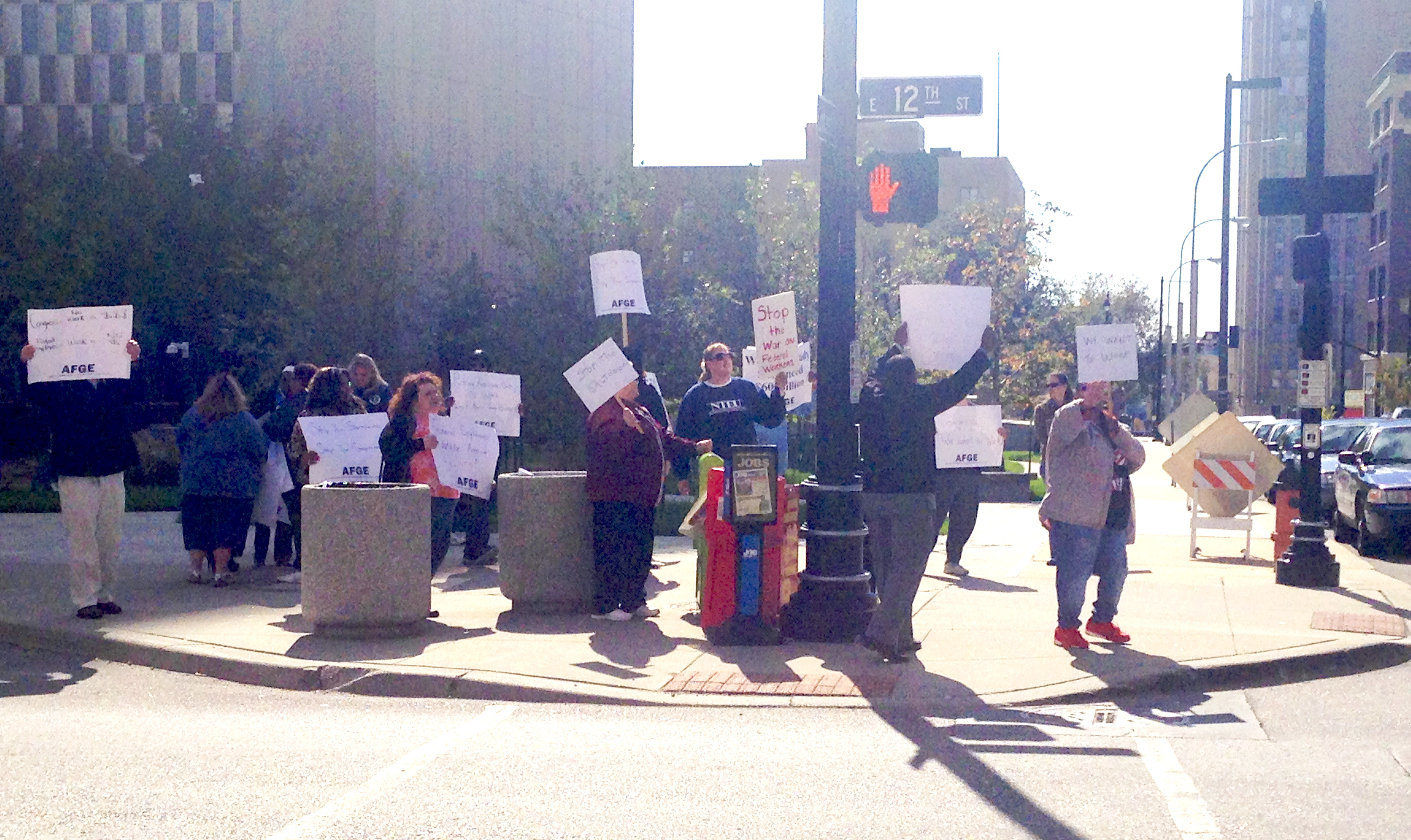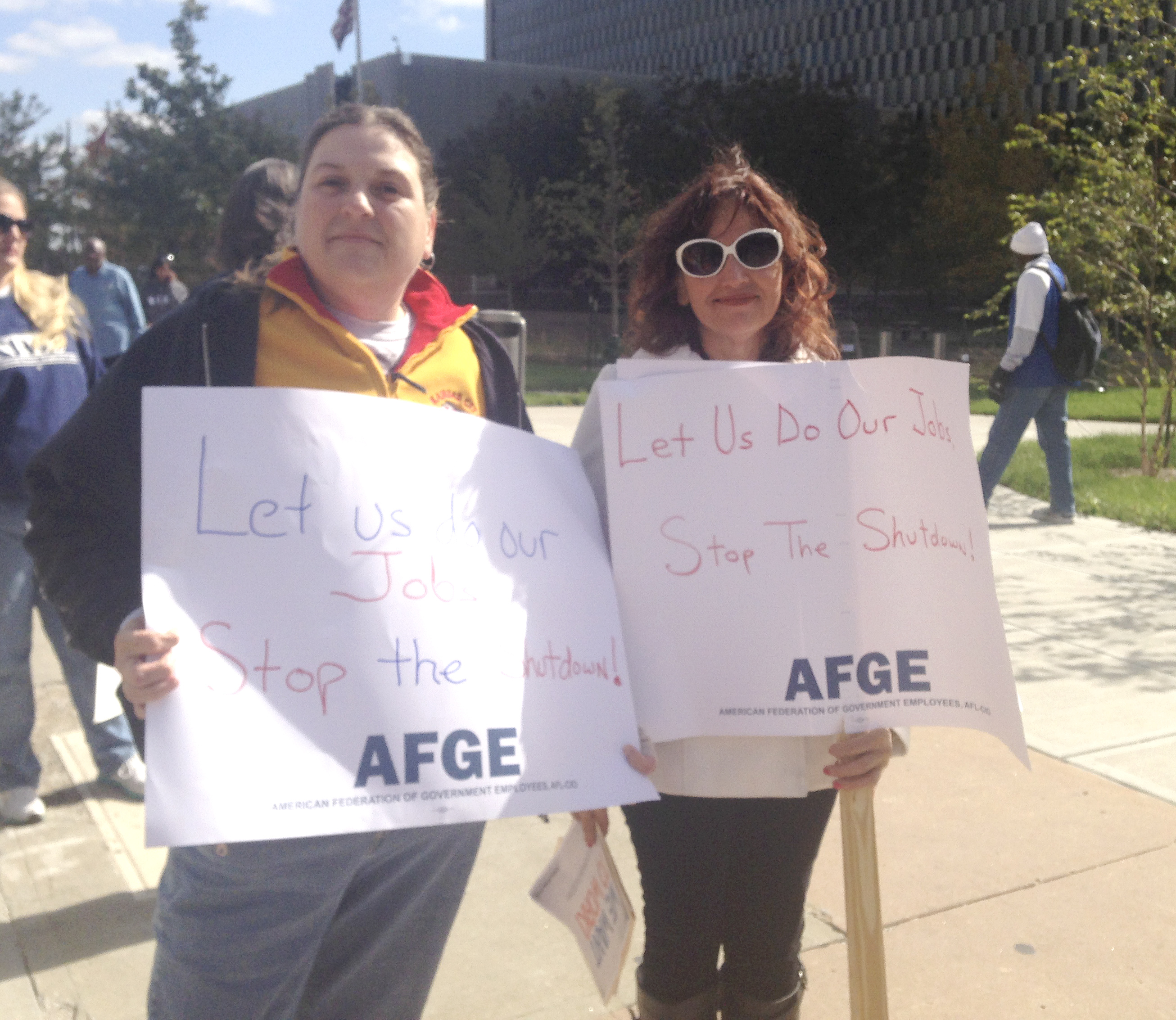By LESLIE COLLINS
Northeast News
October 16, 2013
“Hey, hey; ho, ho; this shut-down’s got to go!”
In singsong voice, federal workers chanted, waving their signs as they stood in front of the downtown federal building in Kansas City Oct. 16. Multiple cars passed by and honked to show their support.
With Congress unable to reach a budget agreement, federal employees have gone without pay since Sept. 30.
“We’re sitting here, waiting for Congress to do something. They’ve had a year to get the budget ready,” said Whitney Foley, a contact representative, who’s worked for the IRS since 2007. “We want to go back to work.”
A number of area federal employees were already living paycheck to paycheck before the government shut-down, she said.
For three years, federal employees have faced frozen salaries and since that time, the cost of living in Kansas City, Mo., has gone up by 27 percent, said Foley, who quoted the U.S. Bureau of Labor Statistics.
“We are severely underpaid and have a hard time making ends meet, period,” she said.
Foley has contacted numerous members of Congress, leaving voicemails in offices that are no longer staffed due to the shut-down.
A mother of three, Foley said they postponed celebrating her daughter’s 16th birthday because the money simply wasn’t there.
“She says, ‘Mom, I understand.’ It was very hard,” Foley said.
Thankfully, their local church stopped by with a birthday cake, she said.
“It’s just been a trying experience for everybody,” she said.
Amy Allmon, an IRS tax compliance officer, said, “I was told by one credit card company, ‘We don’t care you’re not getting your paycheck.”
This month, she couldn’t pay her Missouri Gas Energy (MGE) bill. However, MGE has been sympathetic, she said.
Earlier this year, federal employees endured a three-day furlough without pay, which caused Allmon to fall behind on her house payments. She had just gotten back on track with the payments when the government shut down, and now her payment will be late, she said. To pay for groceries this month, she borrowed $50 from a friend.
As for Foley, her landlords are threatening to evict her since she didn’t pay the rent this month.
“They said they understand, but they still need their money; they’re a business, too,” she said. “It’s very hard. It puts a lot of stress on top of stress. It’s not that we don’t want to pay our bills, we just don’t have it (money).”
To find additional funds to pay her rent, Allmon said she planned to visit Catholic Charities following the protest.
Other federal workers have been skipping doctors appointments or not filling prescriptions because of the cut in pay, she said. For “essential employees” who must still report to work sans pay, the burden is even greater, she said, as they must still pay for gasoline or bus fare to travel to work.
“It feels like little kids fighting over the same toy,” Allmon said of Congress. “I don’t understand. Every year, Oct. 1 is the budget deadline; why can’t you get it taken care of before it causes problems?”


















